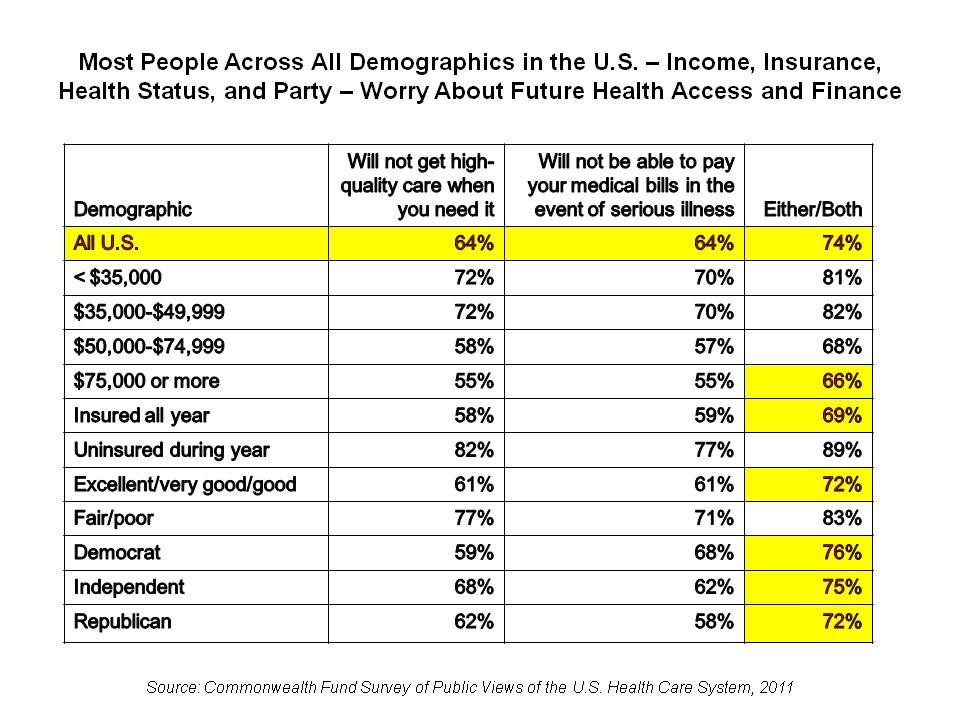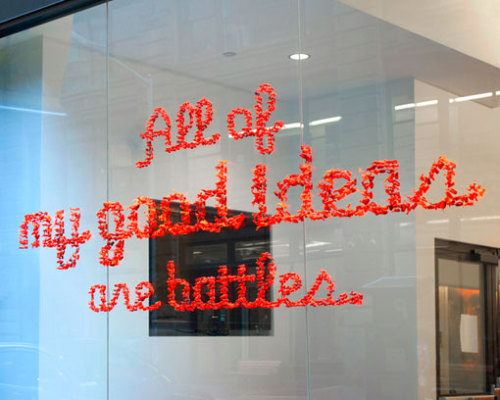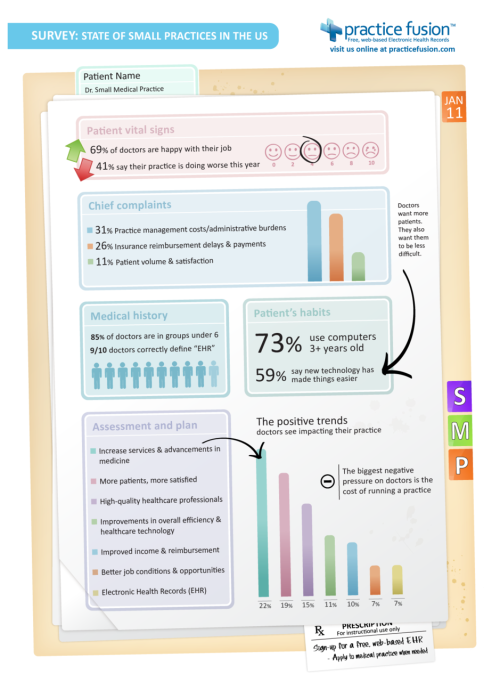January 17, 2012
January 16, 2012
Fashionably late
The reason I'm focusing on the timing is because 7:03 wouldn't be the sweet spot if everyone knew about it. Meaning if everyone were told the doors close at 7:03, expectations would change and so would the sweet spot. Even if you explained the reason for closing the doors at 7:03, people would understand and then continue to adjust their actions to a sweet spot a little after 7:03. Knowing we have the option allows for a little moral hazard.
The sweet spot can't be known. It just happens. At least for those "cool" enough to let it happen.
What makes the yoga teacher cool is not being too strict and closing the doors at 7am sharp and not being too haphazard and closing the doors too late. This kind of time leniency happens often, when you're catching a bus, running to a meeting, going to a dinner. There will always be people who arrive on time for the sake of punctuality and those that will arrive late because they didn't time it right. The sweet spot is somewhere between the two and what makes it possible is the choice of the guest or the host to take it easy and arrive or start a little after when they're "supposed" to.
This is what makes being fashionably late so cool.
January 8, 2012
Movie Review: Pina
When you see such open expression repeating itself again and again, it's no surprise that it primes you to be openly expressive yourself. I didn't quite want to dance, but I did want to move, do something, yell out.
It was the kind of movie where you expect to blink your eyes and see the audience suddenly erupt in the same form of dance that's on the screen. I wouldn't have been shocked if I saw dancers synchronously moving down the side aisles. In fact, I'm a little disappointed it wasn't part of the 3D experience.
It's satisfying to know that an entire group of people are thinking and doing something so different from what you normally encounter. It reminds me of when I was doing bhangra and dancing 6,000 audience shows and I would meet people who had no idea what bhangra was. The world seems incredibly big sometimes.
I appreciate movies and books for so many reasons, but this has to go back to the root of their origin. To introduce. To reveal the unknown in an awesome way.
The trailer itself is beautiful and what it should be, a tease to entice you to the full experience.
January 6, 2012
Negotiating mutually
"I offer my thoughts not as a Buddhist nor as a religious believer, but simply as one human being among nearly 7 billion others. One who cares about the fate of humanity and wants to do something to safeguard and improve its future"
-Dalai Lama
One example is my negotiation with Verizon a few weeks ago when they called me the day after I got my iPhone about a promotion of 500 free minutes if I renewed my account. Since I had already renewed my plan, only 12 hours before, they said I wasn't eligible for the promotion anymore.
At this point, I had several Machiavellian choices. I could have gotten angry with the agent, making them so annoyed that they would've just given me the deal instead of staying on the phone with me any longer. The agent could've hung up on me, but that leads into the next strategy of calling as many agents as necessary before I got the one willing to give me the promotion. I could've pulled the "let me talk to your supervisor" bit, I could've threatened to cancel my plan, thereby being switched to the cancellation department who would've gladly conceded to keep a 5-year subscriber to their service.
Instead, I kept chatting with the agent who originally called me about the promotion. I told him how I got the iPhone after going to three different shops who all said I wouldn't get it for two weeks. He liked the tall tale I told (which was all true) and we laughed about my luck in finally finding a manager who was saving a new iPhone for his friend but gave it to me anyway (part of the reason he gave it to me was because I told him my story of looking for an iPhone all day and he understood why I wanted it before Christmas). The agent lived my experience and realized it was seriously dumb luck that I got the phone and that he called 12 hours later to give me the promotion.
He asked me to hold while he talked to his supervisor to get the authorization code to override the denial. He did this completely of his own accord. Turned out you couldn't override it on his system. Makes sense, just in case someone is up to those Machiavellian techniques I mentioned earlier. He apologized, but then decided to connect me to the customer service department to see if they could help. He was my spokesperson about why I wanted the 500 minutes and the customer service rep said she'd try it on her end. She could in fact make the change and we all had a "woohoo" moment when it worked. All in all, I was on the phone for under 20 minutes, generally had a good time talking to customer service reps and got the promotion on grounds that it made sense to everyone involved.
It was only 500 minutes after all. And that's the crux of it. I'd rather leave off feeling good if none of it had worked out, because it's a measly amount to worry myself over. If I had pursued the call to battle the reps, and not won, my blood pressure would've been up, the taste in my mouth would've been sour, my viewpoint would've been generally negative for the next few hours and the reps would've also been a worse place because of me. Later on in the day, I would've regretted messing up my mood for a mere 500 minutes on my plan.
Negotiating mutually may as well be called mutual understanding and if you take the "mutual" out of it, negotiation is just another form of coming to an understanding. There are a lot of tactics out there about leverage, stake, walking away and so on, and they have their place. Sometimes - car sales for example - you're simply walking into a battlefield.
Most negotiations aren't of this sort. Whether it's your rent going up or your insurance company denying your claim or a store not accepting your return, there's a human on the other end of that desk or phone. The system may not allow you to negotiate, but humans can come to an understanding that can override the system they built in the first place. You have a personal story to tell now and you'll have your chance to listen to someone else's story soon too. As they say, keep paying it forward. Maybe we'll even make it easier to buy a car someday.
January 3, 2012
Legacy blogging
When we can be honest about who we are and what we want, there is no need to demand, be rude or aggressive, or manipulate others that are involved in helping us get what we want. Instead, we know that we are transmitting a signal on the right frequency to bring all that we desire into our experience.
-Madisyn Taylor
Legacies aren't built single-handedly. They are an outcome of growth with a curated community. I have worked hard to consciously curate both my personal and professional networks as I've discovered new ideas and grown to understand more deeply what I care about. Now I want to share that understanding and find others who reflect on a similar level.
I have made the mistake in the past of thinking that my interests, whether in health, food, politics or some other field, are echoed in occasional posts that fit into these buckets. The posts I wrote or linked to were important enough to my thinking at the time to share with others. For example, I would be interested in the construct of language, read books and articles about it, have in depth conversations with friends and colleagues and share my findings in a couple of posts I thought best reflect the subject.
I shared the outcome but not the process.
Without a context behind why I was writing about the construct of language or where my interest came from or how I discovered material on the subject, these posts would seem to come out of nowhere. Even now, when I look back on these posts, I remember my personal journey through the subject which has repeated itself many times since. But my posts weren't additive. They didn't build to anything but a memory of my interest.
I hope to change my approach even as I write this post. I could have let my thoughts about legacy blogging simmer over the next few weeks, found others who had written on the subject and curated my findings here. Instead, I'd like to share what I bring to the art of learning.
We all have a unique process of getting from point A to point B. Many people have been at each of these metaphoric points before. They've struggled through the same things we struggle through now. It's not about being at point A or getting to point B, it's about how you evolve from one to the other that weaves an interesting story. Your story.
Starting Anew
"But my vision of success is my own to nurture. It’s not for anyone else to decide. I intend to grow in the ways that matter most to me, not the ways that society tells me I’m supposed to care about."I've often started writing in my blog and stopped. I write in a private journal and occasionally in 750words, both of which are very cathartic as well as milestone-capturing experiences for me. The feeling of writing for an audience, even a small one, is quite a different experience.
- Steve Pavlina
The problem is that you feel like you are writing for them. It's different from being up on stage giving a lecture, where the metric of success is very likely how well your message is received. In the blogosphere, it's more like writing for an empty auditorium in the hopes of filling it. There's nothing truly to grasp.
Another problem is trying to effective. As they say in journalism, don't "bury the lead". You worry about this. Titling your post with a "How to" or "5 reasons why" is another strategy that increases page hits, and you spend more time thinking about this than you ever care to. You think about your "voice", the consistency of your writing, whether you can keep up a routine.
You think about all this before you even start your post, which of course hinders starting your post.
Blogging serves a different purpose for everyone, but it should be fun. It takes valuable, personal time, at least an hour per post writing, editing and reviewing. There's nothing wrong with having goals for your writing, but it helps if they're sustainable.
My goal is to build a legacy through my blog. I see the evolution of my personality in some of the articles I've written over the years, but overall it's a series of interrupted writing held back by the belief that I need to perform for an audience that may not be there.
In some ways, this is a fresh start in a new year. I didn't make a new year's resolution to do this and I hesitate even now simply because it may be viewed as such. But that doesn't have to be a bad thing and I see 2012 as a year of pacing ourselves. Taking a second to think if we're on the right track as revolutions, both personal and worldly, continue to trail us.
I hope my writing reflects that decision to take stock before moving forward. I have many projects underway and I'm trying to better judge success from a personal vantage point, not one that is handed down to me. This can only come from a deeper understanding of past experiences, observing others and being part of a community and culture I care about.
October 23, 2011
October 17, 2011
Quote
If he were alive today, I believe he would remind us that the unemployed worker can rightly challenge the excesses of Wall Street without demonizing all who work there; that the businessman can enter tough negotiations with his company’s union without vilifying the right to collectively bargain. He would want us to know we can argue fiercely about the proper size and role of government without questioning each other’s love for this country -- (applause) -- with the knowledge that in this democracy, government is no distant object but is rather an expression of our common commitments to one another.--Barack Obama referring to Martin Luther King at the Memorial speech on 10/16
September 6, 2011
George Carlin on Being Human
"I don't consider myself an active member of the human race. I know that by definition I am, but I don't go to the meetings, and I don't have a card."Start at 3:50 for the great quotables, but the whole thing is worth a watch.
July 27, 2011
Newsletter: Summer 2011
******
Here are some more thoughts on city living:
At the same time, advancement feels like it's outpacing us. No
July 6, 2011
Joan Didion - The White Album
 Joan Didion makes me want to write.
Joan Didion makes me want to write.I'm on a vacation/staycation, sweating in a humid apartment with two fans running, one in front, one behind me. I finished The White Album a week ago, reading The Year of Magical Thinking now and looking forward to her 56-page essay-book, Fixed Ideas: America Since 9.11. I only heard of her a month ago in June after finishing Patti Smith's Just Kids. I wanted more writing like that; non-fiction, in-depth explorations of life through an autobiographical lens.
For a sci-fi/fantasy reader, it's been a wayward and rewarding pleasure. If psychobabble holds any truth, I went from "escaping the real-world" to jumping in it full-fledged.
"Most of us live less theatrically, but remain survivors of a peculiar and inward time. If I could believe that going to a barricade would affect man's fate in the slightest I would go to that barricade, and quite often I wish that I could, but it would be less than honest to say that I expect to happen upon such a happy ending."There's a distant apathy to her style. I picture her flippantly flicking her hand as words go from brain synapses firing onto the page. She's good, she knows it, and it bothers her. She achingly tries to elucidate this feeling in her writing. "A sense of anxiety or dread permeates much of her work", as an anonymous Wikipedia contributor references from an article about her.
"I gravitated to the random. I swung with the non-sequential."She's more funny than serious though. More lost than analytical. She comes from wealth, is wealthy, and has a clear understanding that her station in life - as a renowned journalist and author - allows her (comped) access to varied aspects of life that others don't see. Her candor gives you front-row seats.
"Bike movies are made for all these children of vague "hill" stock who grow up absurd in the West and Southwest, children whose whole lives are an obscure grudge against a world they think they never made. These children are, increasingly, everywhere, and their style is that of an entire generation."She's talking about the generation of the 70's, but I see the hipsters of today or sometimes the disconnected teen entrepreneurs or the laid-off brokers turned freelancers. Held accountable to rules that no longer pertain to them. Absurd, begrudging, distant.
I keep reading Didion because she keeps hinting at recurring themes. Having written since the early 60's till today, she could very well point out the "human search for meaning in a changing world". But it's something Obama might say in a campaign speech. We might see it on a billboard promoting Scientology, abortion rights, or Chase Bank. It may be assigned as a homework assignment in an English class focused on the classics; Of Mice and Men, Dickens, or Brave New World. The cliche doesn't bear repeating, so she writes to convey the feeling.
June 25, 2011
June 23, 2011
I love reading Joan Didion.
June 22, 2011
Checking Email
June 21, 2011
Patti Smith - Just Kids
 Patti Smith writes innocently. She reads in a fluid way, the way a skateboarder must feel when the ricocheting of the wheels against the ground is lost to the smooth ride. It feels like Patti escaped the noisiness of the world, but not without difficulty. She knows of it, but lives beyond it.
Patti Smith writes innocently. She reads in a fluid way, the way a skateboarder must feel when the ricocheting of the wheels against the ground is lost to the smooth ride. It feels like Patti escaped the noisiness of the world, but not without difficulty. She knows of it, but lives beyond it.I can't echo her writing through metaphor as well as a reader can decipher it through "Just Kids". Overall an ode to Robert Mapplethorpe, the book speeds through adolescence into young adulthood in mid-60's New York. Andy Warhol fanaticism, Martin Luther King's death, Jimi Hendrix being cool, Janis Joplin's insecurities, and other folklore play out in first hand.
Life just happened to Patti Smith, and she didn't struggle against it. She was lost and hungry and destitute, but kept going for the sake of art. I was sucked in by this struggle and couldn't stop reading, trying to figure out what this esoteric term that couldn't be seen or defined meant to her. Art in some sense was god, though the religious relation was never mentioned.
I couldn't relate to her hardship because I always found a practical solution for it. When Robert went through withdrawal, why did she take him to the Chelsea Hotel and not to Saint Vincent's? Why didn't she ask Janis Joplin or Jimi Hendrix to see her work and sponsor her? I was continuously drawn to her lack of finding a solution and letting circumstance suit her pace of life. Maybe she happened to life, because she would reject offers to sing or read her poems when they didn't feel right. She would pursue acting, though she didn't have any experience in it.
Patti and Robert had an approach to life that didn't at all make sense to me. I think that's the point. Patti wrote "Just Kids" to show the simple sinusoidal flow of life. Not just the content, but also the writing echoed that sentiment. There was no meaningful conveyance of "follow my route". There was no way you could anyway. No ego, no audience to write to, no publisher to impress. I'm reminded of Anna Nalick's "2 am" when she says she had to get a song down on paper before it threatened the life it belonged to. That's probably what Patti felt.
She was asked to write about her time with Robert by Robert and though you knew it the whole time, she only shared that at the end. This didn't have to be published for her to feel the work was complete.
May 24, 2011
The Art of Non-Conformity » Hello, My Name Is…
"I don’t think that any of these ideological constructs are bad—in fact, they’ve clearly done good things for the world and helped a lot of people live more intentionally. But I do think it’s a mistake to group yourself into someone else’s idea of identity."
From Hello, My Name Is… by Chris Guillebeau
This post is one of the most clearly laid-out arguments against labels. The most difficult part about fighting labels is becoming another label during the process. You become anti-label and the cycle is never-endless from there.
I like the way Chris links labels back to defining your personal identity. So many of us gain from dressing up, looking a certain way, having a higher-sounding title, living in a swanky neighborhood, working at that awesome company because of the way people look of us. Their perception of us makes us feel better. We become what others admire in that era - that specific moment in time when dark jeans or ties or hats or geekiness or tech work or working at Apple or McMansions or Beverly Hills or whatever are the in thing. We're social animals and we climb that hierarchy set for us by our social structures. Memes.
If we step out of that moment - or rather mement - and dig down deep for what we care about, we might find something different. Something dissimilar to the current social norm. We can never avoid labels, but going through the "know thyself" exercises lets us create our own or more solidly become part of a mission that we consciously agree with.
What mement are you a part of or do you want to create?
May 23, 2011
Money, Happiness and Personality
"Life, except for the obvious physical needs, is not so much defined by the external situation as by the inner one. Having money won’t change your internal makeup. If you’re an anxious sonofabitch without money, you’re going to be an anxious sonofabitch with a lot of money."
Money, or the lack thereof, brings out the real you. Stickler, freewheeler, bragger, hoarder, hider, straggler, whatever your personality might be is what personality you have with money. The link between money and happiness is much more uncertain than with money and personality. It's the not the personal earning, but the personal growing, changing and evolving that will change someone's relationship with money.
I've been learning a lot about my personal relationship with money and how closely it's associated with my philosophy of life. I don't much like what I'm discovering. The strong correlation just means I guide my life around its accumulation. It's not just currency, it's my value system. And I'm working on changing that.
The strongest influences are people who's value systems define their currency. For example, some people believe strongly in the value of relationships. We all might think we do, but we mostly hang out with similar socio-economic groups, lots of us make friends up the ladder, and marriage-wise, misunderstanding about financial issues is always among the top 3 reasons for divorce. People who truly value relationships deal in a different currency. For them, social capital may be important; how many friends you know that you can rely on, the level of trust you've garnered with your partner, etc. They're trading and bartering on a social exchange rate.
Other people have value systems surrounding creativity. They deal in the currency of art, originality and aesthetic. Regardless of money or power or social capital, they're motivated and drawn to what moves them visually or musically. It's something unseen, but felt at their core.
I'm learning these different currencies, which seem so new to me, but have been around forever. Everything is intrinsically linked to money, but it doesn't have to be the guiding force or value system that drives us. It's the byproduct that lets us be more ourselves, whatever that personality might be. In a capitalist system, all of us are susceptible to being caught in an accumulation cycle and it's when we stop and assess our personality, values and motivations that we can truly begin to grow and change our relationship with money, and happiness.
May 9, 2011
May 6, 2011
How to Be Unremarkably Average
"Use your credit card as your primary means of spending. Get the largest mortgage you can qualify for. Fill it with plasma TVs and expensive furniture. Buy a big, new car and complain about the cost of gas. Spend all you earn, or maybe even more than you earn. The government will help you if there’s a recession. Spend money on things you don’t want but will help you impress others."
The recurring theme is personal security; doing what's safe, sticking to what you know and understand. There's nothing bad in that. We are all trying to achieve some form of security, but when we reach it we slow down. And we certainly reach it when we hit the average mark.
The key word is "trying". We should never stop. There is no achieving "security", only the sense that we have. The revolutions going on around us wake us up to that fact. Security is an aim, not a reality. There's nothing disconcerting in that. Rather, it keeps us alive!
May 2, 2011
The Upside of Irritation
"No matter how good we are at controlling our circumstances, there will always be factors and people that we cannot control. How we respond to these experiences to a great degree determines the quality of our lives. The goal of spiritual development is not to learn to control our environment—which is more of an ego-driven desire. And while having some measure of control over our external reality is important, it is when we are confronted with a person or situation that irritates us and we can choose not to react that we know have made progress spiritually. It is when we have mastered our internal reality that we will have become the masters of our lives."
April 21, 2011
Group Think
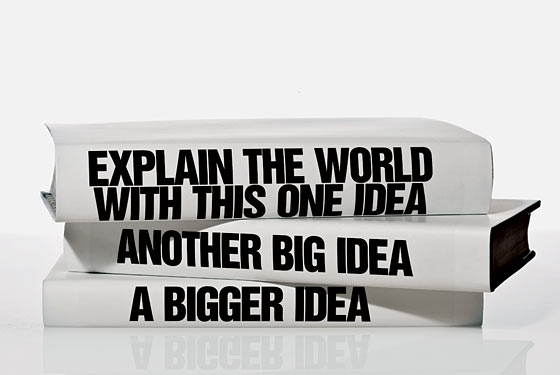
"To which I say: key-shmey. There is no rule, process, peer group, leader, or best seller that can absolve us of the responsibility of thinking our way through life on our own two feet. What irks me most about this infinite parade of gigundo solutions isn’t their glibness or even the borderline theology (of some) and borderline Babbitry (of others) involved in promising audiences easy, happy, profitable ideas. Nope. What irks me is that when you rigidly apply grand theories to everybody, sooner or later everybody feels like nobody, whether you’re in Communist Belgrade or the local DMV. There is a reason we call such systems soul-crushing: They ignore or annihilate individual difference and inner life."
April 20, 2011
Seeking Advice from Yourself
"Think back to how you viewed the world when you were younger. What were your thoughts on happiness, love, and injustice? Think about how you would have reacted to a dilemma you are currently facing. The perspective may shed a different light on relationships, money matters, or life decisions. Likewise, think about the person you will become. A more mature version of you might mull a problem or conflict over carefully before taking action right away… or perhaps not. Maybe your older self would be more willing to take risks, care less about what other people think, and want to enjoy life more."
April 19, 2011
The Internet hasn't invented the skeleton in the closet...
"The Internet hasn't invented the skeleton in the closet, it's only made it easier to take the skeleton out. That doesn't mean that humans can't be mature."
April 18, 2011
We love our reflections

"When researchers partially morph a person’s face with a politician’s, that person becomes more likely to approve of the politician — and has no clue why. As long as the ratio of the politician’s features remains below 40 percent, the person doesn’t even realize the photograph was doctored."
April 15, 2011
David Christian: Big History
This is wonderfully put together and the way it ends is just remarkable.
April 13, 2011
Gentle Nudges
Jane Sarasohn-Kahn says it best:
Health is mobile, and health care is local. The So-Lo-Mo phenomenon plays beautifully into the world of moms, who are their families’ Chief Household Officers. Mothers have been the key determinants of health and health care consumption in their households, and mobile gives them the platform that makes their health decisions more efficient and even engaging.
April 12, 2011
Newsletter: Spring 2011
The interplay between the two sides in daily life was remarkable to
I'd love to hear about what's going in your life, so drop me an
All the best,
April 11, 2011
Knowing when to change
"When I was 17 I read a quote that went something like “If you live each day as if it was your last, someday you’ll most certainly be right.” It made an impression on me, and since then, for the past 33 years, I have looked in the mirror every morning and asked myself, “If today were the last day of my life, would I want to do what I am about to do today?” And whenever the answer has been “no” for too many days in a row, I know I need to change something.
Remembering that I’ll be dead soon is the most important thing I’ve ever encountered to help me make the big choices in life, because almost everything—all external expectations, all pride, all fear of embarrassment or failure—these things just fall away in the face of death, leaving only what is truly important. Remembering that you are going to die is the best way I know to avoid the trap of thinking you have something to lose. You are already naked. There is no reason not to follow your heart."
April 9, 2011
Be a pupil of myself
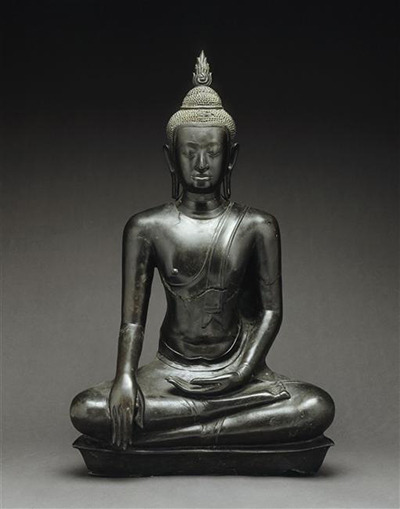
siddhartha
I shall no longer be instructed by the Yoga Veda or the Aharva Veda, or the ascetics, or any other doctrine whatsoever. I shall learn from myself, be a pupil of myself; I shall get to know myself, the mystery of Siddhartha.” He looked around as if he were seeing the world for the first time. - Hermann Hesse in Siddartha

March 25, 2011
Make It Mean Something
They might tell the House [of Representatives] that there's a 1.5 percent failure rate, but most Americans don't understand what that means. I mean, 1.5, what is that? Is that a lot? You have to relate it to something that means something to somebody. Otherwise, people have the perception that space flight is safe, and when there's an accident, they're shocked. It's like, "We gotta stop flying." If we want to add additional safeguards because now we're feeling emotional about it, okay, we can do that. But if we're still meeting our design specs for loss, why would we stop flying?
March 12, 2011
Google: Creepy & Fantastic

I typed in "japan earthquake" in Google to find out more details about the location and the magnitudes of the recent earthquakes. Google had organized US Geological Survey data in way that told me exactly what I was looking for. As if the search engine were reading my mind.
It's what makes Google so creepy and fantastic.
January 28, 2011
Who profits off you being unhealthy v. healthy?
- Coca-Cola makes a direct profit off you behaving unhealthily. What are the companies that make a direct profit off your everyday behaviors that optimize health?Like Reply
- This is a good question - much of the US economy clearly benefits from promoting unhealthy behavior (e.g, mainstream food industry, energy, health care, retail, etc.).
I suspect most facets of tourism make a direct profit off of behaviors that optimize health.
January 20, 2011
Third Space
I've loved the idea of a "third space" since I learned of it only a year ago. I can't wait to go here.
January 14, 2011
There's no space for the extra space
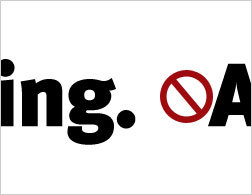
There’s no space for the extra space. By Farhad Manjoo on Slate.
I saw this piece earlier in the day and loved it. We don't need two spaces after the period. It's just a convention that can be changed. Although, as I typed this I found myself double-tapping the space bar after periods and corrected it after the fact. Ugh.
Also, why do people put their hats on AFTER they get outside? You lose all that heat off the top of your head and then trap cold air inside. Put it on before you get out the door and you won't even feel the transition into cold weather.
January 12, 2011
The joy of not being sold anything
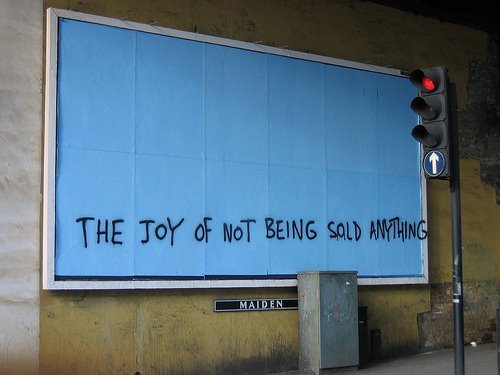
I've been thinking a lot lately about useful ads, good ads, value-filled ads that inform us and motivate us. Ads about community events, blood donation, clean sidewalks, and healthy living. Ads that communicate the variety in our culture, the foods, the music, the arts, the people and their ways of thinking.
Ads that don't have to sell.
Why are we willing to believe things that are false?
Newsletter: Winter 2011
January 10, 2011
Working Hurts Less
On procrastination and how to think about the substitute activities that we do instead of dong work:
When you procrastinate, you’re probably not procrastinating because of the pain of working, because on a moment-to-moment basis, being in the middle of doing the work is usually less painful than being in the middle of procrastinating.
That is pretty useful to remember. And another tidbit:
I’m starting to think that […] you do not regain mental energy from [procrastination. Success and happinesscause you to regain willpower; what you need to heal your mind from any damage sustained by working is not inactivity, but reliably solvable problems which reliably deliver experienced jolts of positive reinforcement.
I think this is a pretty useful insight - when compelled to procrastinate, what you choose to do can greatly affect whether you manage to get actual work done later.
In October of last year, there was a great piece in the New Yorker about procrastination that convinced me to change my working habits immediately.
I took on exactly this philosophy that procrastination is a personal signal of unhappiness. Neal Stephenson once wrote, "Boredom is a mask that frustration wears". The usual precursor to procrastination was boredom, which told me two things; I was frustrated about something that was making me unhappy, which in turn was making me avoid what I was frustrated about.
I began looking for segues that would lead me back to productivity. If I had to read a long policy paper and I was procrastinating, I would read a novel instead, which would gear the reading side of my brain and get the right word-scanning juices flowing to ease into governmental policy.
If I had to analyze a report on work RVU productivity variations for five specialty practices, I would take a break from the computer, walk, and observe in detail my surroundings, exercising my analytical brain to see things I normally wouldn't see. When I got back to the task at hand, it'd be a natural transition to sit in front of the computer for a few hours comparing numbers.
As noted above, having self-awareness about how you feel when you're in the middle of something produces direct results in your behavior. I'd rather be in the middle of a good book or walk than surfing the web. Scheduled surf time is far more rewarding.




